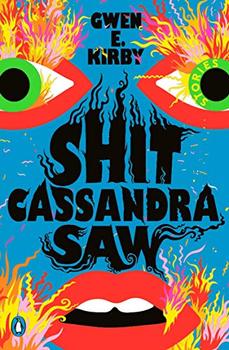Summary | Excerpt | Reviews | Beyond the book | Read-Alikes | Genres & Themes | Author Bio

The narrators of the short story collection The Wrong Heaven are plagued by critical talking lawn ornaments, earworm song lyrics (see Beyond the Book), dolls that have come to life, and beautiful angels of death, but amid these layers of weirdness there is a pulsing dissatisfaction that is more existential in nature. Relationships end, families dissolve, sex is unsatisfying, death inevitable. One narrator, in particular, puts this crisis plainly when she declares herself tired of the present state of her affairs: "What I wanted was something not offered by human existence at all: the wild, unfettered life of the body."
The narrator of "Horse," the collection's third, and, perhaps, most arresting story, speaks these words. She has decided to enroll in an experimental medical program using horse DNA to turn human women into horses. Once the procedure is complete, the transformed horse-women are transported to an island off the coast of Florida where they live out their days running wild and free on a ranch. The narrator's desire to become a wild horse is a metaphor for the desire to be free of the constrictions of contemporary urban life, particularly those endured by women. "My boredom had never really been boredom," the narrator realizes, "but rather a deep, deep anger." She explains responding to catcalling and inappropriate touching on the subway by "snarling, flashing my eyes, baring my teeth." What woman hasn't imagined responding to sexualized microaggressions with animal rage? The story is deep and psychologically meaningful, but it is also an opportunity for Bonnaffons to display her humor. Interspersed with the narrator's story are passages ostensibly from a promotional brochure for the horse transformation program containing Q&As like "Q: What are the potential side effects? A: Sterility, seizures, centaurism."
In another exceptional story, "A Room to Live In," a woman with intimacy issues finds that two of her miniature figurine creations, a boy and girl doll, have become sentient, and she feels she must hide them from her husband. Bonnaffons' excellent idiosyncratic descriptive work shines here (though some of it borders on non-sequitur), as the narrator admires how her husband "believes in the dream life of penguins, in the quiet longings of plants, in the muscles and heartbeats of prehistoric fish. He eats oranges slowly, out of respect."
"Alternate," one of the only stories that does not involve magical or supernatural elements at all, is another standout. This story begins with the narrator deciding the only way to win her girlfriend back is by procuring a giant photograph of the Dalai Lama (of whom the girlfriend is a devoted fan) and ends with a phone call to then-president Barack Obama, whom she implores to help her make sense of her life. In the capable narrative hands of the author, this plot has a surprisingly cogent logic.
The Wrong Heaven may be filled with uncanny proxies, doppelgangers, cursed objects, and unsolved mysteries, but its central longing is very human. Bonnaffons occasionally strips away the bizarre facade for a stunning moment of genuine beauty and despair. One of these moments occurs at the end of "Horse," when the narrator describes a certain kind of touch that is "like the universe catching its breath." In another story, the loneliness of a widow is captured with heartrending and poetic precision, "...the lonely length of a life, the way new moments kept arriving like empty boxes on her doorstep. Each day, a fresh nothing."
There are moments when the collection seems to be merely quirky for quirkiness' sake, and some readers may find these eccentricities grating. (The titular story featuring the talking lawn ornaments, for example, is aimless, a mere device for delivering something strange.) When all systems are firing, however, the magical elements in The Wrong Heaven are very effective tonally, providing a touch of sinister menace or even silliness to stories that read like fairy tales for world-weary adults.
![]() This review was originally published in The BookBrowse Review in August 2018, and has been updated for the
January 2020 edition.
Click here to go to this issue.
This review was originally published in The BookBrowse Review in August 2018, and has been updated for the
January 2020 edition.
Click here to go to this issue.

If you liked The Wrong Heaven, try these:

by Tony Tulathimutte
Published 2024
From the Whiting and O. Henry–winning author of Private Citizens ("the first great millennial novel," New York Magazine), an electrifying novel-in-stories that follows a cast of intricately linked characters as rejection throws their lives and relationships into chaos.

by Gwen E. Kirby
Published 2022
Margaret Atwood meets Buffy in these funny, warm, and furious stories of women at their breaking points, from Hellenic times to today.
Your guide toexceptional books
BookBrowse seeks out and recommends the best in contemporary fiction and nonfiction—books that not only engage and entertain but also deepen our understanding of ourselves and the world around us.